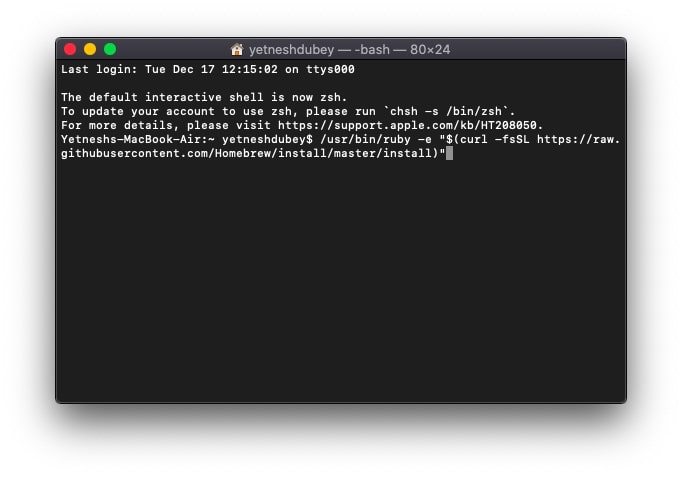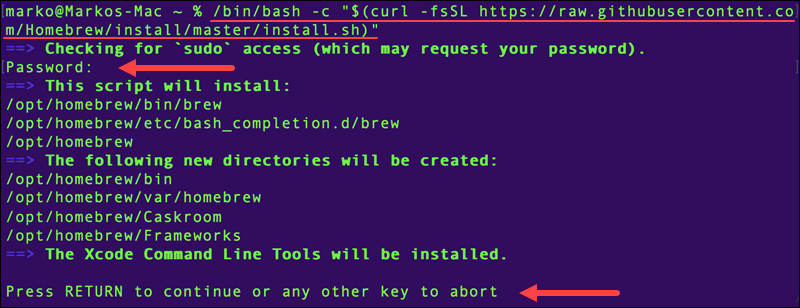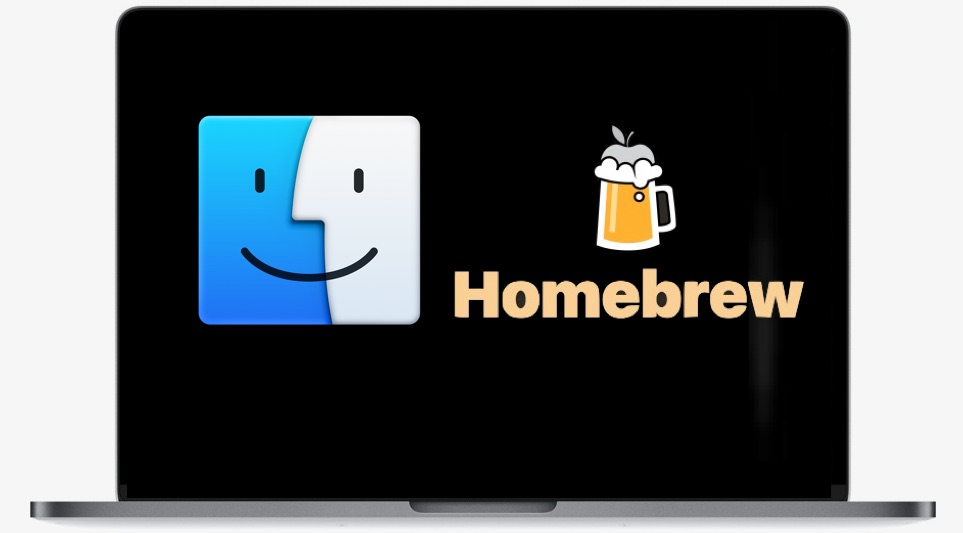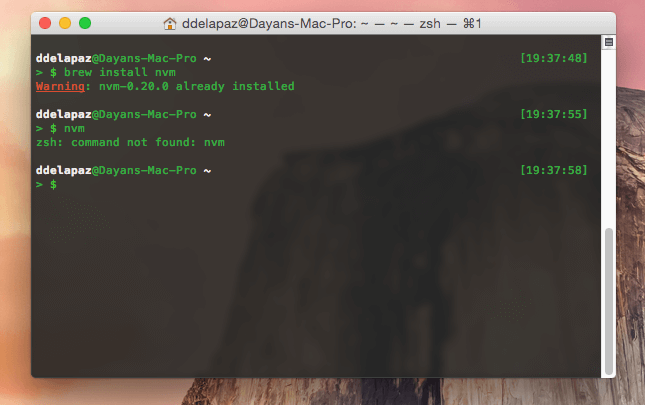

- INSTALL HOMEBREW ON MAC M1 PRO HOW TO
- INSTALL HOMEBREW ON MAC M1 PRO INSTALL
- INSTALL HOMEBREW ON MAC M1 PRO UPDATE
- INSTALL HOMEBREW ON MAC M1 PRO FULL
- INSTALL HOMEBREW ON MAC M1 PRO PORTABLE
Running any of these commands in the terminal will bring up a prompt to install Xcode Command Line Tools.
INSTALL HOMEBREW ON MAC M1 PRO HOW TO
How to Install Xcode Command Line Tools from a Command PromptĪpple has made it easy to install Xcode Command Line Tools because certain commands will prompt you to begin installation. Instead, try either of two faster methods. The download will take too long and it will consume unnecessary disk space.
INSTALL HOMEBREW ON MAC M1 PRO FULL
I don't recommend installing the full Xcode package unless you're developing software for an Apple device.

install Xcode Command Line Tools as part of a Homebrew installation.install Xcode Command Line Tools when triggered by a command.You have three choices to install Xcode Command Line Tools on a Mac: Luckily, the Xcode Command Line Tools package only requires 1.2GB of space on your disk. Programmers have used these tools on Unix operating systems since computing's beginnings, and they serve as the foundation of almost all software development. It's a smaller package for software developers with tools that run on the command line, that is, in the Terminal application. Instead, you'll install Xcode Command Line Tools. If you're not developing software for an Apple device, you won't need the full Xcode application (it requires over 40GB of disk space!). It's not pre-installed, but you can install it from the Apple developer website or the App Store on your Mac. If you are developing software for macOS, iOS, tvOS, and watchOS, you must install the full Xcode application.
INSTALL HOMEBREW ON MAC M1 PRO UPDATE
INSTALL HOMEBREW ON MAC M1 PRO PORTABLE
This does not work (yet) on Apple Silicon or using Homebrew’s portable Ruby.

Here's the full bullet point on Apple Silicon in the Homebrew 3.0.0 release notes:Īpple Silicon is now officially supported for installations in /opt/homebrew. The Homebrew blog post says "we welcome your help" in providing bottles for all packages moving forward.

While the native support is not yet comprehensive, it bridges the gap significantly, and users can still run Terminal via Rosetta 2 to do what they can't yet while running natively on Apple Silicon. Further Reading Mac mini and Apple Silicon M1 review: Not so crazy after allThe volunteer Homebrew team made the announcement on the Homebrew blog alongside today's release.


 0 kommentar(er)
0 kommentar(er)
